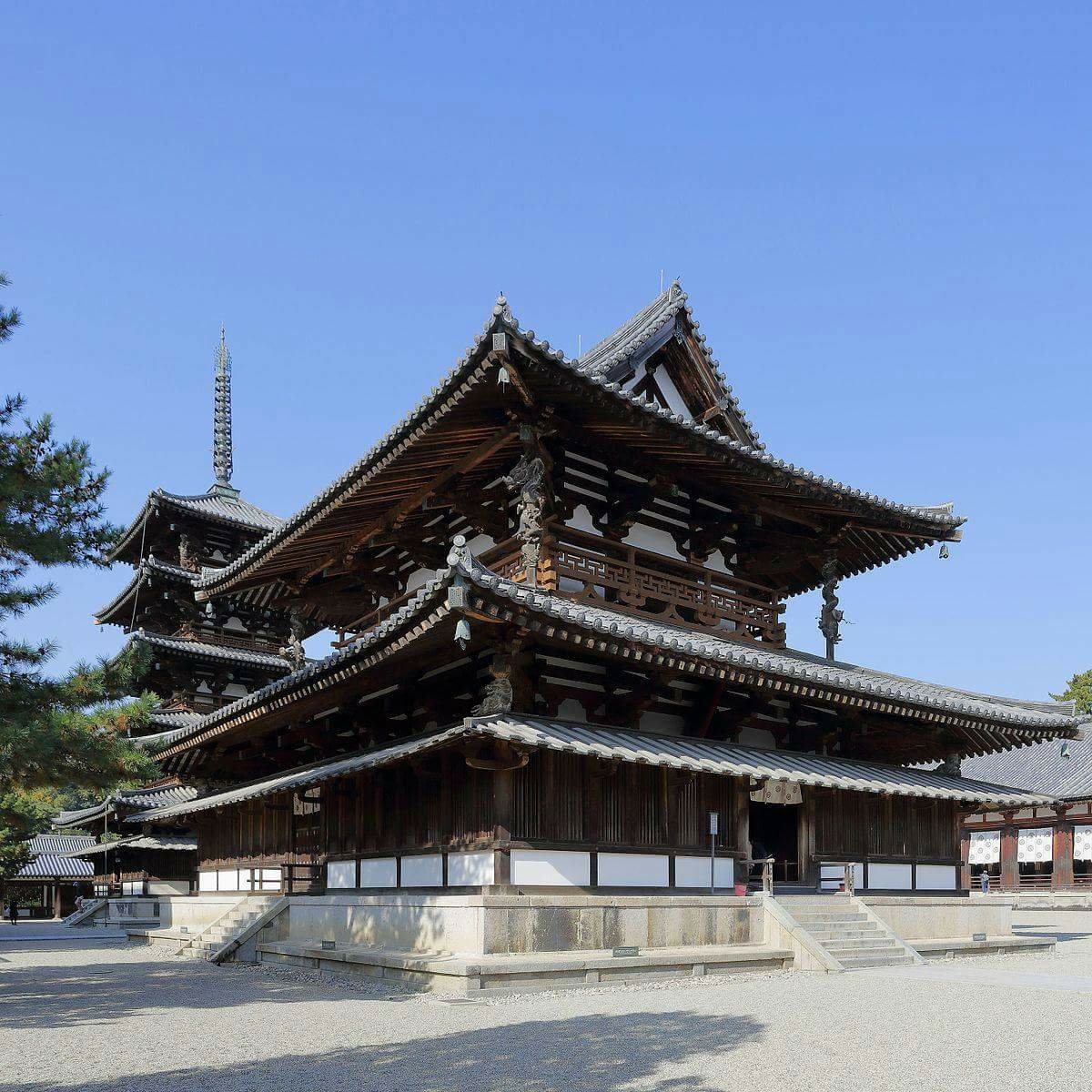
Prince Shotoku, adoption of buddhism, enlightenment and great political reforms
https://en.historylapse.org/asuka-period
(Golden Hall and Five-storied Pagoda of Hōryū-ji from 607 AD, part of UNESCO World Heritage Site) Asuka represents the beginning of the Japanese enlightenment, a period which has been compared, from a cultural perspective, with the ancient Greco-Roman culture. A writing system is introduced together with Buddhism, Confucianism and Taoism. After some struggles, Buddhism becomes a state religion in parallel with Shintoism, enforcing the legitimacy of the emperor. Arts and architecture are heavily influenced by the Korean kingdoms and China. Popular and cultivated literature flourishes under the guidance of inspired Japanese political leaders educated according to the Chinese model. Prince Shotoku, Emperor Tenji and Emperor Kanmu become national heroes. Under their guidance, Japan was reformed and became strong enough to challenge the Chinese domination of the Korean Peninsula. The speed and quality of the changes are comparable to the ones from the Meiji Restoration. In the end, Japan lost the war in Korea but the defeat led to innovations which contributed further to the country’s development. It was the beginning of a Japanese national conscience.
Subscribe
Login
0 Comments
